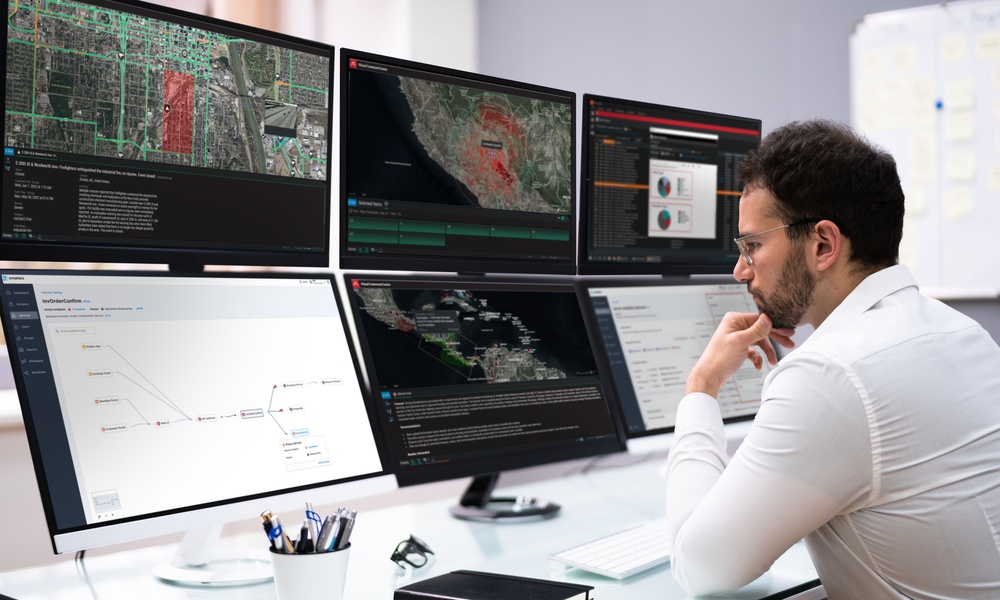Business continuity planning for the manufacturing industry

Building a business continuity plan for the manufacturing industry
For those in the manufacturing industry, critical events threaten financial loss due to unplanned downtime, reduced factory utilization rates, lost revenue, and even employees put at risk. Unfortunately, facing a critical event has become less of an “if” than a “when” situation, and preparedness is vital COVID-19 shone a light on how susceptible manufacturers are to global supply chain issues, and customers and employees were left without products to purchase or work to do, respectively.
Manufacturers must be prepared for all types of disruptive events such as severe weather activity, natural and man-made disasters, hazardous materials incidents, supply chain disruptions, and equipment and technology failures. To protect their organizations from negative impacts, leaders must prioritize the development of a business continuity plan (BCP).
Having a business continuity plan for the manufacturing industry is essential to not only remediate a critical event as it happens, but to continue operations for those networks reliant on a manufacturer’s business. Additionally, BCPs minimize risk to both finances and brand reputation.
The importance of building a plan
Business continuity plans are important in all industries, but especially for those in manufacturing. With products constantly moving in and out of your factory, there are hundreds (if not more) of people relying on you. Furthermore, manufacturers can be particularly susceptible to natural and technological crises. With so much reliance on electricity and computers, one outage can wreak havoc on your processes.
The ramifications of a disruption can be catastrophic and potentially take years to rectify. In the time it takes to rebuild operations, organizations might suffer:
- Revenue loss
- Brand diminishment
- Loss of valuable customers
- Forced closure
It is imperative that manufacturers plan to avoid these sorts of severe consequences, even more so if a disruption can lead to the endangerment of employees or personnel.
Manufacturing industry-specific dangers
Manufacturers face unique challenges in the face of a critical event:
- As a midpoint in the supply chain, there are people relying on you on both ends of the creation spectrum.
- Manufacturing has become an increasingly global network. A disruption can potentially equate to losses across the world.
- Depending on your output, downtime can disrupt financial markets and consumer spending, an impact that can affect your brand image and reputation on a global level
What to include in your business continuity plan
Teams need to have a business continuity plan template for manufacturing that is fully developed and easily accessible should a critical event occur. Having an organizational-wide plan, especially if operations are spread across a large geographic area, reduces the likelihood of human error and ensures a standardized response across the entire company.
Other than having one centralized plan, consider outlining the following in your BCP:
- Secondary, even tertiary, supply vendors
- Machinery and facility backups
- Alternate workflows, routes, and scheduling
- How you will rapidly identify and remediate IT outages and disruptions
- Dynamic communications that can alert employees, stakeholders, and/or customers of potential hazards, risk, or disruptions
Business continuity plans should be highly detailed and cover multiple kinds of critical events to remain as prepared as possible. While creating a BCP may feel overwhelming, there are many resources that can support your efforts. Everbridge can help.
How Everbridge’s BCM tools can support manufacturing organizations
As the leader in Critical Event Management, Everbridge can help manufacturers successfully maintain business continuity, minimize impact of disruptions, and increase customer satisfaction.
Everbridge helps organizations remain resilient by putting a standardized BCP in the pocket of every one of your employees. Being armed with detailed and organized instruction empowers anyone and everyone to act as efficiently and effectively as possible when disaster strikes.
Additionally, Everbridge can enable streamlined communications to make your operations as efficient as possible, whether during a critical event or just everyday operations.
“We run a holistic security program, where we run info security, cyber security, physical security, business continuity, and crisis plan management under one umbrella….If we embed security at the process it is part of the behavioral”
Bhavesh Patel, Sr. Director, Security Operations & Technology for Sanofi
Discover Everbridge’s leadership in resilience and why it matters today.



